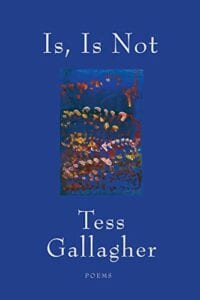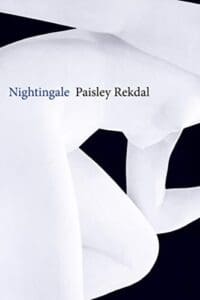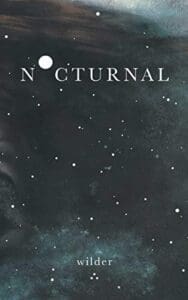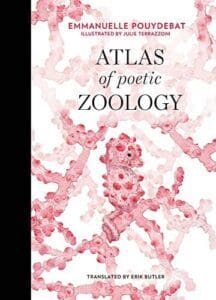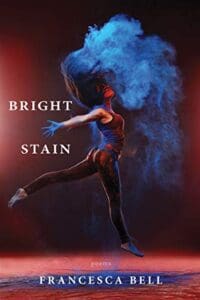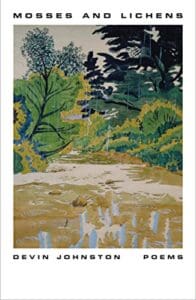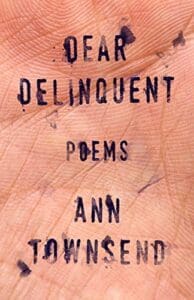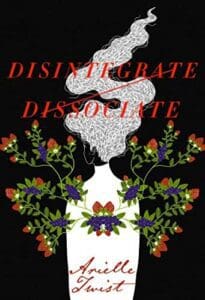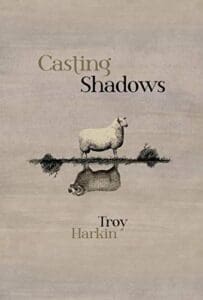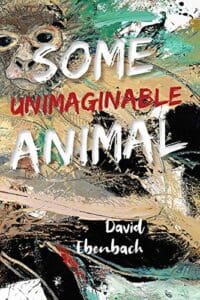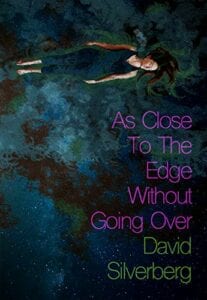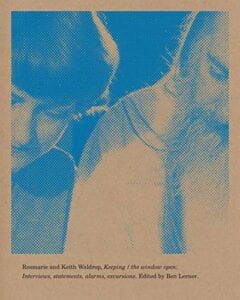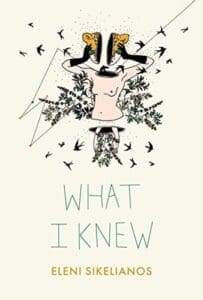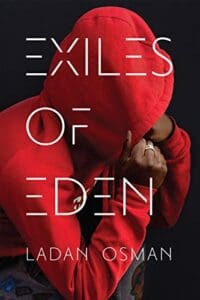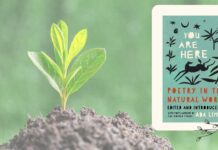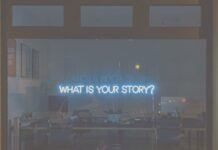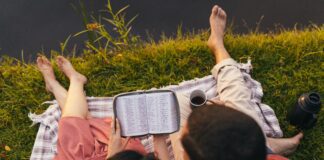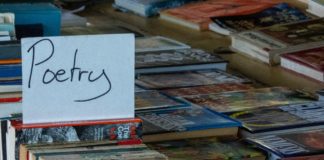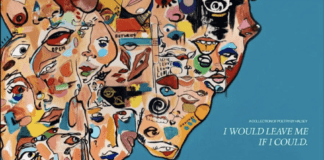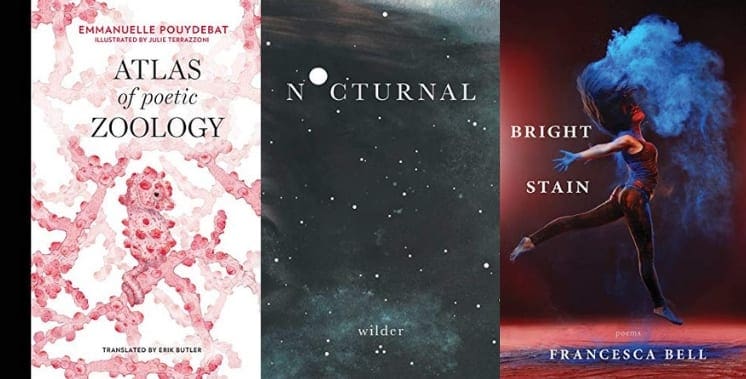
See all the new poetry out the week of May 7, 2019.
As the spring heats up, the new poetry releases hitting bookstores brings the heat. These are the poetry releases we can’t wait to get our hands on this week.
Is, Is Not: Poems by Tess Gallagher
Description: Is, Is Not upends our notions of linear time, evokes the spirit and sanctity of place, and hovers daringly at the threshold of what language can nearly deliver while offering alternative corollaries as gifts of its failures. Tess Gallagher’s poems reverberate with the inward clarity of a bell struck on a mountaintop. Guided by humor, grace, and a deep inquiry into the natural world, every poem nudges us toward moments of awe. How else except by delight and velocity would we discover the miracle within the ordinary?
Gallagher claims many Wests―the Northwest of America, the Northwest of Ireland, and a West even further to the edge, beyond the physical. These landscapes are charged with invisible energies and inhabited by the people, living and dead, who shape Gallagher’s poems and life. Restorative in every sense, Is, Is Not is the kind of book that takes a lifetime to write―a book of the spirit made manifest by the poet’s unrelenting gaze and her intimate engagement with the mysteries that keep us reaching.
Nightingale by Paisley Rekdal
Description: Nightingale is a book about change. This collection radically rewrites and contemporizes many of the myths central to Ovid’s epic, The Metamorphoses, Rekdal’s characters changed not by divine intervention but by both ordinary and extraordinary human events. In Nightingale, a mother undergoes cancer treatments at the same time her daughter transitions into a son; a woman comes to painful terms with her new sexual life after becoming quadriplegic; a photographer wonders whether her art is to blame for her son’s sudden illness; and a widow falls in love with her dead husband’s dog. At the same time, however, the book includes more intimate lyrics that explore personal transformation, culminating in a series of connected poems that trace the continuing effects of sexual violence and rape on survivors. Nightingale updates many of Ovid’s subjects while remaining true to the Roman epic’s tropes of violence, dismemberment, silence, and fragmentation. Is change a physical or a spiritual act? Is transformation punishment or reward, reversible or permanent? Does metamorphosis literalize our essential traits, or change us into something utterly new? Nightingale investigates these themes, while considering the roles that pain, violence, art, and voicelessness all play in the changeable selves we present to the world.
Nocturnal by Wilder Poetry
Description: The poems of Nocturnal—newly revised and expanded—are constellations to guide those on a journey of healing and self-discovery, no matter how dark the night.
From @wilderpoetry comes a heavily expanded revised edition of Nocturnal, a collection of poetry and beautifully illustrated black-and-white imagery inspired by darkened days and sleepless nights. Poetry meets presentation in each of the four sections (“Dusk,” “Northern Lights,” “Howl,” “Lucid Dreams,”), which trace the author’s continuing journey of self-discovery while illuminating a path for others along the way. Ink stains, landscapes, dreamlike animals, blackened pages, and textured spreads create a multifaceted reading experience. And true to the moniker, these poems are linked by a motif of “the wild.” Celebrating the art of self-love poetry with both word and image, Nocturnal will leave readers comforted, curious, and inspired to explore the world around them.
Atlas of Poetic Zoology by Emmanuelle Pouydebat
Description: This Atlas of Poetic Zoology leads readers into a world of wonders where turtles fly under the sea, lizards walk on water, insects impersonate flowers, birds don’t fly, frogs come back from the dead, and virgin sharks give birth. Animals, writes Emmanuelle Pouydebat, are lyric poets; they discover and shape the world when they sing, dance, explore, and reproduce. The animal kingdom has been evolving for 700,000 million years, weathering many crises of extinction; this book allows us to draw inspiration from animals’ enduring vitality.
Pouydebat’s text, accompanied by striking color illustrations by artist Julie Terrazzoni, offers a catalog of wondrous beings. Pouydebat describes the African bush elephant―the biggest land mammal of them all, but the evolutionary descendant of a tiny animal that stood less than fifty centimeters (nineteen inches) high sixty million years ago; the scaly, toothless pangolin, the world’s most endangered mammal―and perhaps its most atypical; the red-lipped batfish, which walks, rather than swims, across the ocean floor; and the great black cockatoo, a gifted percussionist. Chimpanzees, she tells us, self-medicate with medicinal plants; the jellyfish, under stress, reverts to juvenile polyp-hood; and the sweetly named honey badger feeds on reptiles, termites, scorpions, and earthworms.
Bright Stain by Francesca Bell
Description: Unapologetically sensual and forthright, Bell explores desire, loss, faith, doubt, tenderness, and violence; and sex as experience, metaphor, and magnifying lens for relationships. Bright Stain may or may not become the Sex and the City of poetry, but this knock-your-socks-off debut will likely inspire debate—perhaps controversy―as it inhabits some startling points of view, including those of pedophile priests, serial killers, and prison inmates. Those who miss reading these breathtaking, visceral poems won’t know what their friends are raving about.
Mosses and Lichens: Poems by Devin Johnston
Description: If a rolling stone gathers no moss, the poems in Devin Johnston’s Mosses and Lichens attend to what accretes over time, as well as to what erodes. They often take place in the middle of life’s journey, at the edge of the woods, at the boundary of human community and wild spaces. Following Ovid, they are poems of subtle transformation and transfer. They draw on early blues and rivers, on ironies and uncertainties, guided by enigmatic signals: “an orange blaze that marks no trail.” From image to image, they render fleeting experiences with etched precision. As Ange Mlinko has observed, “Each poem holds in balance a lapidary concision and utter lushness of vowel-work,” forming a distinctive music.
Dear Delinquent by Ann Townsend
Description: Is it possible for poetry to be simultaneously raw and elegant, direct and oblique, hurtful and consoling? Yes, says Dear Delinquent, Ann Townsend’s incandescent new collection. “My heart presses my ribcage like an octagon fist,” she writes, taking on the persona of both betrayed and betrayer. Through poems that masterfully recall the styles of Sylvia Plath or Philip Larkin, Townsend convinces us that, even if its most destructive forms, love is the driving force behind all behavior.
Disintegrate/Dissociate by Arielle Twist
Description: In her powerful debut collection of poetry, Arielle Twist unravels the complexities of human relationships after death and metamorphosis. In these spare yet powerful poems, she explores, with both rage and tenderness, the parameters of grief, trauma, displacement, and identity. Weaving together a past made murky by uncertainty and a present which exists in multitudes, Arielle Twist poetically navigates through what it means to be an Indigenous trans woman, discovering the possibilities of a hopeful future and a transcendent, beautiful path to regaining softness.
Casting Shadows by Troy Harkin
Description: Casting Shadows collects for the first time the twisted poetry of Troy Harkin, wherein you will find yourself among scalpers, neck bags, and nocturnal sheep that hate you. Clive Thompson (Smarter Than You Think) once described Harkin’s verse as “Carnival of Mayhem” poetry. That works. In fact, Troy Harkin suffers under the influences of Richard Brautigan, Nick Cave, and the koans of later day Dudeism. Language is both his Lego blocks of lust and monster truck of love. He’s versatile that way.
Some Unimaginable Animal by David Ebenbach
Description: In his much-anticipated second poetry collection, David Ebenbach addresses the full scope of the human condition–past, present, and future. Exploring the vast sweep of history, from our ancient evolutionary origins to our future archaeological remains, Ebenbach’s deceptively light-handed poems penetrate to the core of what it means to be human, a brief but exquisite being, full of appetites both healthy and harmful.
As Close to the Edge Without Going Over by David Silverberg
Description: Poet and theatre artist David Silverberg has written a unique poetry collection that probes where our future is headed, mixing science fiction, horror, and magic realism. With biting insight, humour and a flair for the fantastical, Silverberg provides us with an extraordinary book taking a deep look at what’s ahead for all of us.
Keeping / the window open: Interviews, Statements, Alarms, Excursions by Keith & Rosemarie Waldrop, edited by Ben Lerner
Description: A rich array of materials coalesce here into a vibrant portrait, in text and image, of two extraordinary artists and collaborators. For nearly sixty years, the Waldrops have influenced multiple generations of writers through their own poetry and fiction, translations, teaching, and their press, Burning Deck, which published some of the most influential authors of late-twentieth-century avant-garde literature. This collection seeks to illustrate the many ways in which the Waldrops have expanded the possibilities of bookcraft, art, community, and literature.
What I Knew by Eleni Sikelianos
Description: What I Knew engages activities and knowledge that can’t be mined or verified by search engines or easily surveilled. Sourced from poetry’s ancient materials of dream, memory, story, and experience, What I Knew aims to create a site of resistance to, and refuge from, our current overflow of information and fact-checking, where private desires and whims cannot be commodified. It seeks alternative, personal forms of globalization rather than the public forms we know.
Exiles of Eden by Ladan Ali Osman
Description: Exiles of Eden looks at the origin story of Adam, Eve, and their exile from the Garden of Eden, exploring displacement and alienation from its mythological origins to the present. In this formally experimental collection steeped in Somali narrative tradition, Osman gives voice to the experiences and traumas of displaced people over multiple generations. The characters in these poems encounter exile’s strangeness while processing the profoundly isolating experience of knowing that once you are sent out of Eden, you can’t go back.
The Human Half by Deborah Brown
Description: Threaded with echoes of familial trauma―a sister’s battle with cancer, a brother’s struggles with depression―the lyric poems in The Human Halfreveal an open-hearted speaker who finds solace in the beauties of celestial navigation, the flowers along the railroad tracks, and the brushwork of Vermeer and Van Gogh. Filled with quirks of perception, Deborah Brown holds space for wonder amidst life’s seasons of longing.


